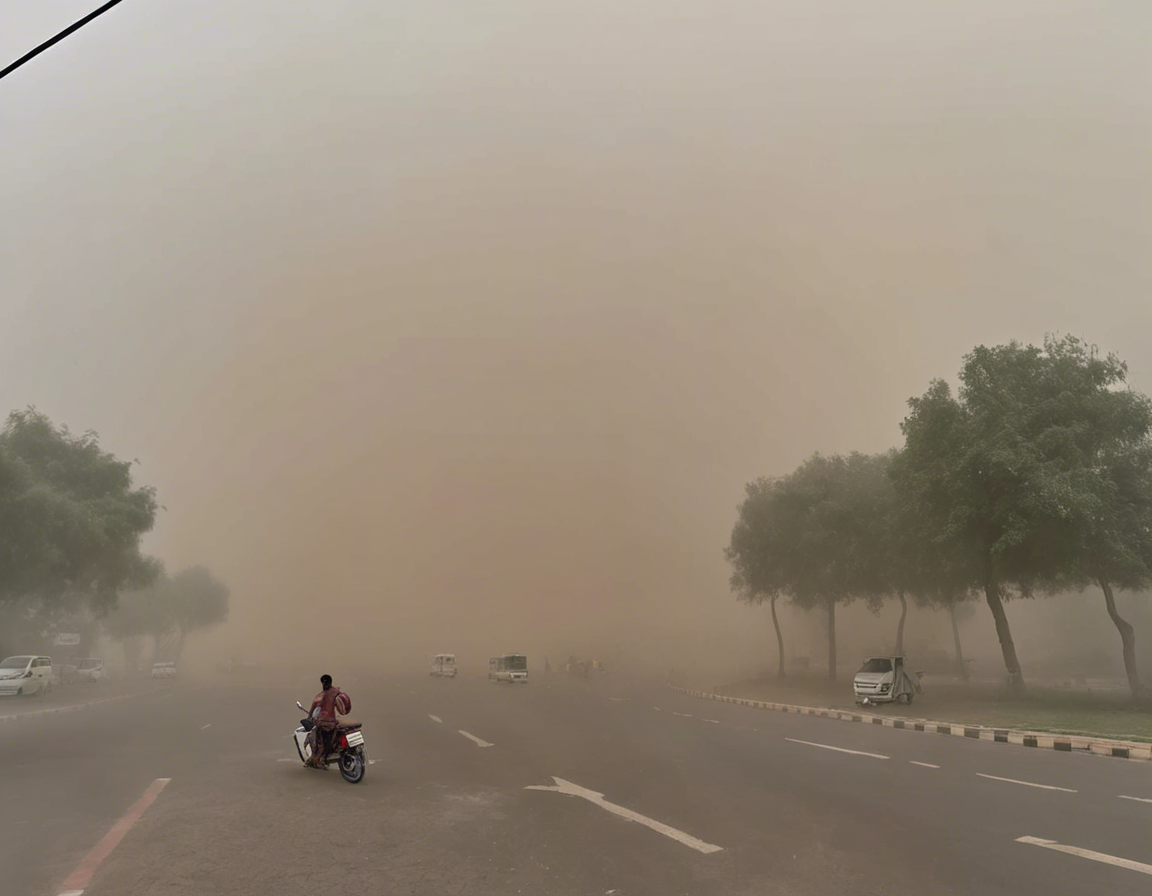Introduction
Living in Delhi NCR, especially during the winter months, can be challenging due to the severe dust storms that often prevail in the region. These dust storms are a result of a combination of factors including pollution, construction activities, and weather conditions, which can lead to serious health issues if not addressed properly. In this article, we will discuss some tips and strategies to help you survive and cope with the dust storm season in Delhi NCR.
Understanding the Dust Storms in Delhi NCR
Dust storms in Delhi NCR are often a result of a combination of factors such as high levels of pollution, dry weather conditions, and construction activities. The pollution levels in Delhi NCR, especially during the winter months, are among the highest in the world, leading to the formation of fine particulate matter that can easily be lifted by the wind, creating dust storms. Additionally, the dry weather conditions in the region contribute to the suspension of dust particles in the air, further exacerbating the situation.
Health Hazards of Dust Storms
Dust storms in Delhi NCR can have serious health implications for the residents of the region. The fine particulate matter present in the dust can cause respiratory issues, allergies, and irritation in the eyes and throat. Prolonged exposure to high levels of dust can also lead to chronic respiratory diseases such as asthma and bronchitis. It is, therefore, essential to take necessary precautions to protect oneself during the dust storm season.
Tips for Surviving the Dust Storm Season
1. Stay Indoors
During a dust storm, it is advisable to stay indoors as much as possible to avoid exposure to the harmful dust particles. Close all windows and doors to prevent dust from entering your home.
2. Use Air Purifiers
Invest in a high-quality air purifier to filter out the dust particles from the indoor air. Make sure to keep the purifier running at all times, especially during the peak dust storm hours.
3. Wear Masks
When stepping out of the house during a dust storm, make sure to wear a good quality mask that can filter out fine particulate matter. N95 masks are recommended for protection against dust particles.
4. Keep Hydrated
Drinking plenty of water during the dust storm season can help flush out toxins and dust particles from your body. It also helps in keeping your respiratory system hydrated.
5. Avoid Outdoor Activities
Try to avoid outdoor activities such as jogging or cycling during the dust storm season. If necessary, limit your time outdoors and wear protective gear such as sunglasses to protect your eyes.
6. Clean Your Home Regularly
Regularly clean your home to get rid of dust particles that may have entered. Use a vacuum cleaner with a HEPA filter to effectively remove dust from carpets, curtains, and upholstery.
7. Keep Plants Indoors
If you have indoor plants, consider bringing them indoors during the dust storm season to prevent them from getting covered in dust. Plants can also help in improving indoor air quality.
8. Take Showers
Taking showers after being outdoors during a dust storm can help remove any dust particles that may have settled on your skin and clothes. It also helps in preventing skin irritation and allergies.
Frequently Asked Questions (FAQs)
Q1. Are dust storms in Delhi NCR harmful to health?
Yes, dust storms in Delhi NCR can be harmful to health, especially for individuals with respiratory issues. The fine particulate matter present in the dust can lead to respiratory issues and allergies.
Q2. How can I protect myself during a dust storm?
You can protect yourself during a dust storm by staying indoors, using air purifiers, wearing masks, keeping hydrated, avoiding outdoor activities, and cleaning your home regularly.
Q3. Are children more vulnerable to the health effects of dust storms?
Yes, children are more vulnerable to the health effects of dust storms as their respiratory systems are still developing. It is essential to take extra precautions to protect children during the dust storm season.
Q4. Can indoor plants help in improving indoor air quality during a dust storm?
Yes, indoor plants can help in improving indoor air quality by acting as natural air purifiers. They can help in removing toxins and dust particles from the air.
Q5. Are there any long-term effects of prolonged exposure to dust storms?
Prolonged exposure to dust storms can lead to long-term health effects such as chronic respiratory diseases like asthma and bronchitis. It is crucial to take necessary precautions to protect yourself from the harmful effects of dust storms.
